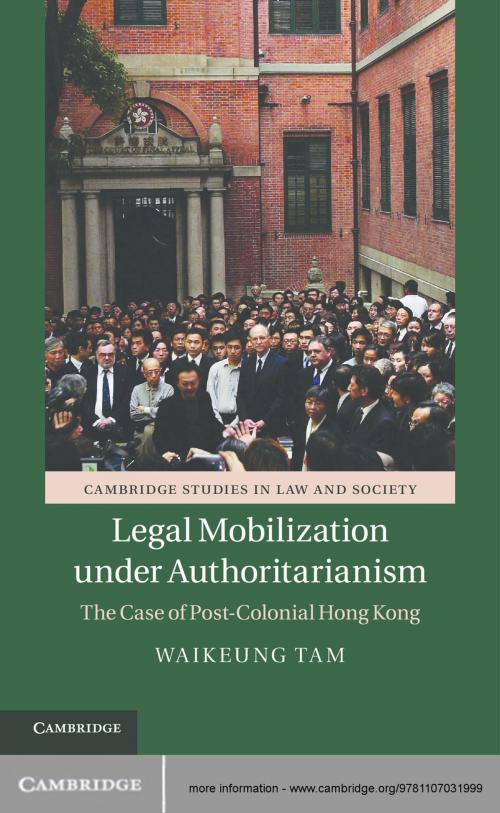Legal Mobilization under Authoritarianism
The Case of Post-Colonial Hong Kong
Nonfiction, Reference & Language, Law, Constitutional, Social & Cultural Studies, Political Science| Author: | Dr Waikeung Tam | ISBN: | 9781139611176 |
| Publisher: | Cambridge University Press | Publication: | November 29, 2012 |
| Imprint: | Cambridge University Press | Language: | English |
| Author: | Dr Waikeung Tam |
| ISBN: | 9781139611176 |
| Publisher: | Cambridge University Press |
| Publication: | November 29, 2012 |
| Imprint: | Cambridge University Press |
| Language: | English |
Legal mobilization is the process by which individuals invoke their legal rights and use litigation to defend or develop these rights against the government. In recent years, increasing attention has been paid to this phenomenon as it occurs under authoritarian regimes. It is often suggested that, in such situations, legal mobilization is caused by the strategic interests of the ruling elites. Using the case study of post-colonial Hong Kong, where legal mobilization has by no means unfolded as political authorities would wish, Waikeung Tam casts doubt on this contention. To do so, he examines in depth why and how legal mobilization arises under authoritarianism. Tam analyses quantitative data of changes in the Hong Kong judiciary agendas over the last three decades and uses detailed interviews with activists, politicians, cause lawyers, judges and government officials to reveal the complex underlying socio-political forces at play.
Legal mobilization is the process by which individuals invoke their legal rights and use litigation to defend or develop these rights against the government. In recent years, increasing attention has been paid to this phenomenon as it occurs under authoritarian regimes. It is often suggested that, in such situations, legal mobilization is caused by the strategic interests of the ruling elites. Using the case study of post-colonial Hong Kong, where legal mobilization has by no means unfolded as political authorities would wish, Waikeung Tam casts doubt on this contention. To do so, he examines in depth why and how legal mobilization arises under authoritarianism. Tam analyses quantitative data of changes in the Hong Kong judiciary agendas over the last three decades and uses detailed interviews with activists, politicians, cause lawyers, judges and government officials to reveal the complex underlying socio-political forces at play.















